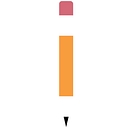Interview Questions
Review this list of 4,392 interview questions and answers verified by hiring managers and candidates.- Product Design
- Product ManagerAnalytical+2 more
- Business AnalystData Analysis+2 moreBusiness AnalystData Analysis+2 more
- Product ManagerAnalytical+1 moreProduct ManagerAnalytical+1 more
- Product Design
- Business AnalystData Analysis+2 moreBusiness AnalystData Analysis+2 more
 Asked at Lyft • Product StrategyProduct Strategy
Asked at Lyft • Product StrategyProduct Strategy- Business AnalystData Analysis+2 moreBusiness AnalystData Analysis+2 more
- Product ManagerProduct DesignProduct ManagerProduct Design
- AnalyticalExecution
- Statistics & Experimentation
- Product ManagerBehavioral
 Asked at Bolt • BizOps & StrategyProduct StrategyBizOps & StrategyProduct Strategy
Asked at Bolt • BizOps & StrategyProduct StrategyBizOps & StrategyProduct Strategy- Product ManagerBehavioral
- Product ManagerAnalytical+2 moreProduct ManagerAnalytical+2 more
- Software EngineerTechnical
🧠 Want an expert answer to a question? Saving questions lets us know what content to make next.
Showing 3901-3920 of 4392
Popular roles
Interviewed recently?
Help improve our question database (and earn karma) by telling us about your experience
+ Share interview experienceTrending companies
 Asked at
Asked at  Asked at
Asked at  Asked at
Asked at  Asked at
Asked at  Asked at
Asked at  Asked at
Asked at  Asked at
Asked at  Asked at
Asked at  Asked at
Asked at 

